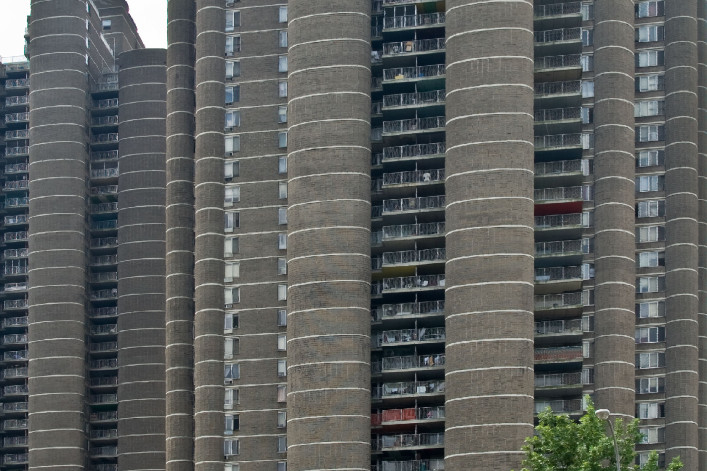Ask Sam: What are the rules for succession in Mitchell-Lama housing?
My mother lives in Mitchell-Lama housing, and I want to take over her lease. What are the rules for succession?
The rules for succession in Mitchell-Lama housing, which provides affordable rentals and co-ops to low and moderate income New Yorkers, include providing proof that you’re related to the current tenant and have lived in the apartment with them, says Sam Himmelstein, a lawyer who represents residential and commercial tenants and tenant associations.
“Mitchell-Lama housing is governed by the state through the Division of Homes and Community Renewal, and by the city through Housing and Preservation Development,” Himmelstein explains. “They have provisions that say family members can succeed you in the apartment, which mirror rent-stabilization guidelines.”
Created in the 1960s in an urban renewal effort, Mitchell-Lama housing is subsidized by the government, and today there are about 45,000 Mitchell-Lama units remaining in New York City. To purchase or rent one (for a deep discount, by NYC standards) owners must meet income qualifications. Naturally, competition is fierce for these apartments, and many of the participating developments have long waiting lists.
Succeeding a current tenant or co-op shareholder also requires fulfilling several qualifications. First, the tenant must have permanently vacated the apartment. This can occur if the tenant dies, moves elsewhere, or is in a nursing home with no likelihood of being able to move back into the unit.
“Family members are as defined by statute. They can be related in a traditional or non-traditional sense. They can be related by blood or marriage (e.g. spouses, children, parents, siblings, grandchildren or grandparents),” Himmelstein says. You can prove a familial connection through documentation like a birth or marriage certificate. If you are a non-traditional family member you must prove that you had an emotionally and financially interdependent relationship with the former tenant.
In addition, you must have co-occupied the apartment with the person you’re succeeding for two years (if you are under 62 years old and don’t have a disability) or one year (if you’re over 62 or have a disability.)
In the past, you also had to be listed on your predecessor’s annual income affidavit, which Mitchell-Lama housing companies use to determine residents’ annual income and whether they must pay a surcharge, if their income has increased over the maximum limit.
In 2013, however, a Court of Appeals case changed this rule.
“The plaintiff, Paul Murphy, was seeking succession. He had lived in the apartment all his life and had proof he had resided there, but he wasn’t listed on the income affidavit,” explains David Hershey-Webb, a partner at HMGDJ Law. “The court ruled that not being on an income affidavit is not fatal to a succession case.”
He adds, though, that it’s still a good idea to make sure your predecessor is listing you on theirs, as it will help your application for succession move along more smoothly.
“You can also prove your tenancy in the apartment by filing state income taxes from that address—if you haven’t filed then, it can be fatal to your succession,” Himmelstein says.
Registering to vote, as well as having a driver’s license, credit cards, bank statements, gym memberships, or medical and employment records at that address, are also strong forms of proof that you’ve resided in the apartment for the required one or two years.
“The more paper that connects you to the apartment the better,” Himmelstein says. “Witnesses can also testify that you occupied the apartment with the departing tenant.”
To apply for succession, you must file an application with the housing company that manages your Mitchell-Lama building. If the housing company denies your request, the application then goes to HPD or DHCR, depending on which agency oversees the development, and they make a ruling.
“If you’re not happy with the decision of the housing company, you can file an administrative appeal to HPD or DHCR,” Hershey-Webb says. “And if they deny you, you can appeal to the state Supreme Court.”
Related:
Ask Sam: Can my kids and grandkids take over the lease to my rent-stabilized apartment? (sponsored)
Ask Sam: Can I get on the lease of my mother's rent-stabilized apartment? (sponsored)
Ask Sam: Will I lose my rent-stabilized apartment if I have to leave town to care for a sick relative? (sponsored)
Read all our Ask a Renters Rights Lawyer columns here.
Sam Himmelstein, Esq. represents NYC tenants and tenant associations in disputes over evictions, rent increases, rental conversions, rent stabilization law, lease buyouts, and many other issues. He is a partner at Himmelstein, McConnell, Gribben, Donoghue & Joseph in Manhattan. To submit a question for this column, click here. To ask about a legal consultation, email Sam or call (212) 349-3000.


























